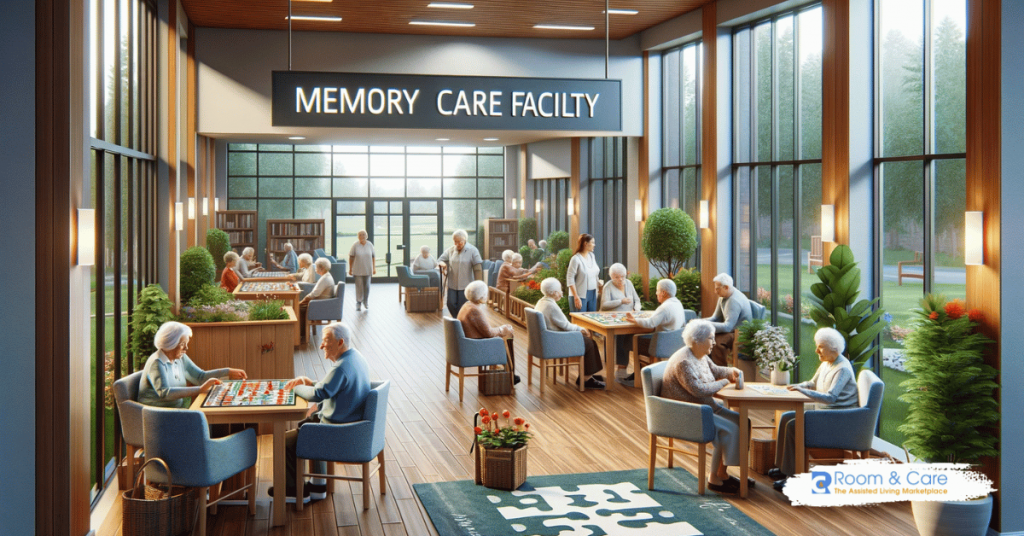Check Out Charlotte Memory Care: Devoted to Senior Citizen Health And Wellness and Wellness
Check Out Charlotte Memory Care: Devoted to Senior Citizen Health And Wellness and Wellness
Blog Article
Developing a Safe and Supportive Environment: In-Home Memory Care Essentials
Establishing a safe and secure and caring setting for individuals calling for at home memory care is paramount to their well-being and quality of life. From making sure security within the space to using reliable communication techniques and implementing memory-friendly layout components, there are crucial components that add to an all natural care strategy. By focusing on creating an encouraging ecological community that caters to the one-of-a-kind demands of those with memory impairments, caregivers can significantly boost the day-to-day experiences of their loved ones.

Safe Living Atmosphere
When providing in-home memory care for individuals with cognitive problems,Producing a safe and hazard-free living environment is paramount. Making sure the safety and security of the individual with memory loss is crucial to stop crashes and promote a sense of well-being. One necessary facet of producing a secure living atmosphere is to get rid of any kind of prospective hazards that can result in slides, journeys, or drops. This consists of safeguarding loosened carpets, ensuring adequate illumination in all locations of the home, and maintaining pathways free from mess.
Furthermore, utilizing innovation such as activity sensing units and alarms can alert caregivers if the individual wanders or is in distress. By prioritizing safety and security measures and removing prospective dangers, caregivers can give a safe and supportive atmosphere for individuals with cognitive problems receiving in-home memory care.
Efficient Interaction Techniques
Executing tailored communication methods is vital in promoting meaningful communications with people with cognitive disabilities in the context of at home memory care. Effective interaction plays a vital role in producing an encouraging environment that improves the wellness and lifestyle for individuals with memory problems. When connecting with someone experiencing cognitive decline, it is crucial to make use of clear and basic language, keep a calm and positive tone, and offer aesthetic signs to assist comprehension.
One key technique is to exercise active listening, showing empathy, persistence, and regard throughout discussions. Non-verbal signs such as face expressions and body movement can additionally help convey understanding and assistance. Additionally, using reminiscence therapy by making use of or discussing past experiences music and art can tap into long-term memories, sparking connections and stimulating involvement.
Moreover, including normal regimens and regular interaction patterns can supply a feeling of experience and safety for individuals with memory disabilities. By executing these communication strategies, caregivers can develop purposeful links and promote a sense of convenience and count on the at home memory care setting.
Memory-Friendly Layout
Offered the relevance of producing a supportive environment for people with memory concerns with effective communication approaches, the consolidation of memory-friendly design elements in the home ends up being important in optimizing their day-to-day experiences and general well-being. Memory-friendly design concentrates on improving safety, convenience, and independence for people with cognitive disabilities. Simple alterations can make a considerable difference, such as utilizing contrasting colors to enhance visibility and lower confusion, including clear signage to assist navigation, and decreasing clutter to protect against sensory overload.
Integrating acquainted aspects from the individual's past, such as favorite things or individual images, can stimulate positive memories and create a feeling of familiarity. By integrating these memory-friendly layout components, caregivers can offer a supportive and safe living space that enables individuals with memory problems to preserve their self-reliance and top quality of life. Charlotte Memory Care.
Daily Routine Planning
When developing a day-to-day routine for people with memory concerns, cautious planning is crucial to support their cognitive feature and general well-being. Developing a structured timetable can help lower confusion, anxiousness, and disorientation often experienced by those with memory disabilities.
Versatility is vital, as some days might call for changes based on the person's state of mind and power degrees. Regularly evaluating and adapting the daily schedule will help ensure its effectiveness in promoting a favorable and soothing environment for people with memory obstacles.
Assistance System Execution
Developing a durable network of helpful individuals plays a pivotal role in enhancing the top quality of treatment and wellness for individuals requiring memory assistance. Household participants, good friends, health care experts, and community sources can all add to producing a strong support group. Interaction among these people is vital to make certain that the requirements of the individual with memory challenges are fulfilled successfully.
Member of the family are typically the main caregivers and create the backbone of the support group. They offer day-to-day care, psychological support, and friendship. It is important for relative to look for support and reprieve when needed to avoid burnout and make certain the best feasible care for have a peek at this site their liked one.
Along with family assistance, involving health care specialists such as doctors, therapists, and registered nurses can offer specific treatment and advice. These professionals can provide important understandings, clinical suggestions, and assistance in managing the person's problem.

Verdict
Finally, creating a supportive and safe environment for individuals with memory care needs is important for read the full info here their well-being. By establishing a risk-free living setting, utilizing efficient communication approaches, integrating memory-friendly layout aspects, intending daily routines, and carrying out a strong support system, caregivers can help boost the lifestyle for those with amnesia. These necessary elements work together to create a nurturing and encouraging setting that promotes independence and enhances total lifestyle.
Producing a protected and hazard-free living setting is extremely important when supplying in-home memory care for people with cognitive disabilities. By prioritizing safety and security procedures and removing possible dangers, caregivers can give a encouraging and safe environment for people with cognitive disabilities receiving at home memory care.
Developing a robust network of encouraging individuals plays a crucial function in boosting the high quality of treatment and wellness for people needing memory assistance - Charlotte Memory Care. Communication try these out amongst these individuals is crucial to make sure that the needs of the private with memory challenges are met efficiently

Report this page